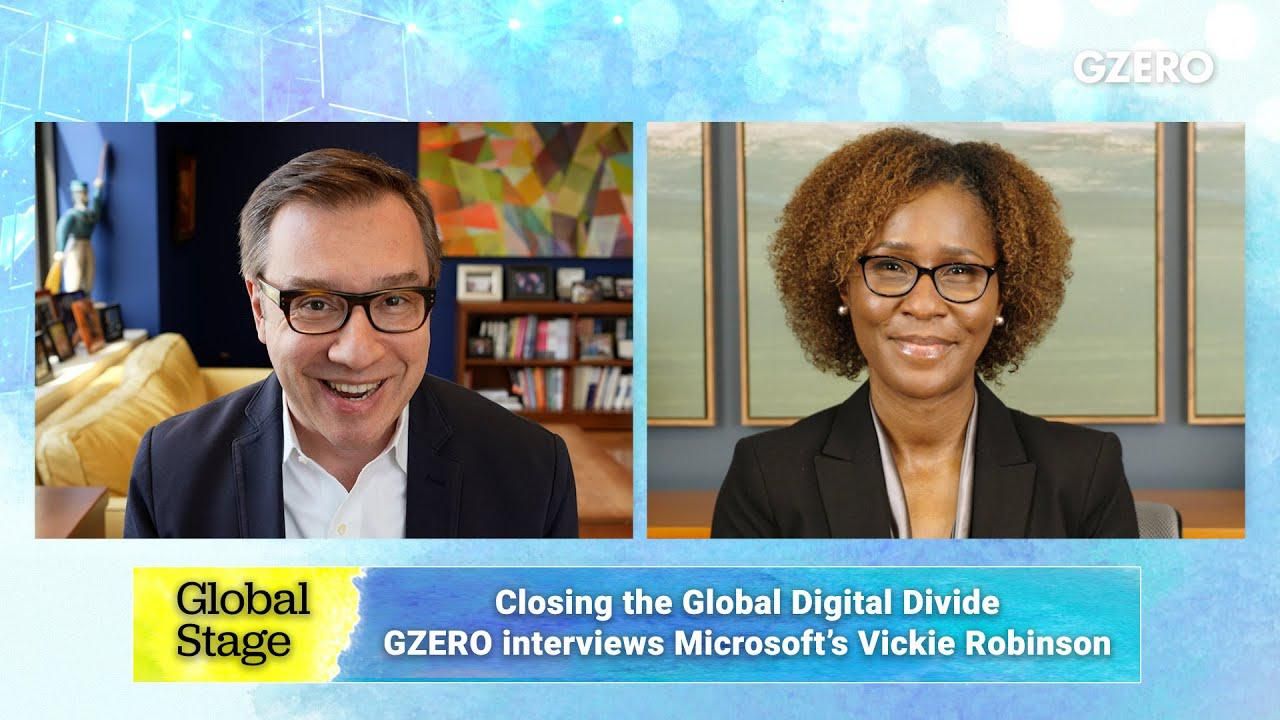
We think we live in a digital-first world — but there's no "digital" at all for 37% of the global population.
That's a big problem in today's economy, where you'll miss out on many opportunities for advancement if you're not connected. The digital divide is thus widening the equality gap.
Being offline "places an automatic limit on your ability to be productive and has major ramifications for our society," says Vickie Robinson, head of Microsoft's Airband Initiative to expand broadband access throughout the developing world.
Robinson believes major progress on connectivity is crucial in order to meet the UN Sustainable Development Goals by the 2030 deadline because getting people online can be a catalyst to achieve all the other SDGs.
"If we really want to tackle some of these big problems and meet these SDGs in a fundamental way ... getting our arms around digital access for all is a way that we can do it."
GZERO's Global Stage is nominated for a Webby Award! Vote for us
Learn more about Global Stage: https://www.gzeromedia.com/global-stage/
- Silver lining from COVID? Women around the world got access to ... ›
- Want Africa to grow? Get people and businesses online: Africa ... ›
- How can we bridge the "digital Grand Canyon"? - GZERO Media ›
- Should internet be free for everyone? A Global Stage debate ... ›
- Private sector partnership key to funding digital access for all - GZERO Media ›
- What impact will AI have on gender equality? - GZERO Media ›
- Why the UN's 17 Sustainable Development Goals are not on track to be financed soon - GZERO Media ›